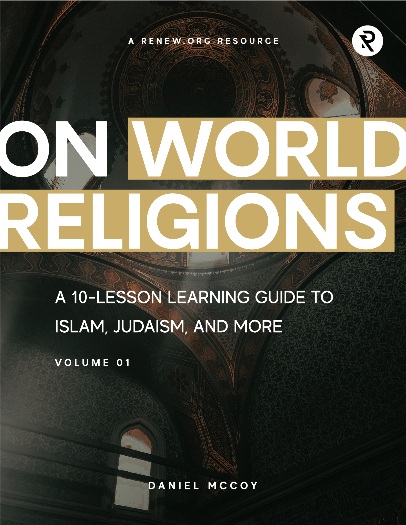
5 Bible Verses on My Mind as I Watch Afghanistan Crumble
“The Taliban are now in control.”
Those are the words one Afghan Christian whispered to Mark Morris, leader of Refugee Memphis, as they sang worship songs in church last Sunday. They were in the middle of singing “A Mighty Fortress Is Our God” when the news came, yet they finished the song like always with, “The body they may kill; God’s truth abideth still; his kingdom is forever!” Morris writes about the sorrow and resolve of Afghan Christians in his excellent article “How Afghan Pastors Reflect on God’s Sovereignty.”
God’s kingdom is forever. Those who place their trust in Jesus cannot lose even when all the world crumbles around them. Yet it is also true that one of the sixty-six books of the Bible is called “Lamentations,” a series of poems by Jeremiah, the “weeping prophet,” as he reflects on the devastation of seeing his homeland starved to death and burned to the ground. Another of the Bible’s books, the book of Job, tells the story of a saintly person who loses everything (ten children, his health, his possessions), wonders why, and never quite gets his questions answered. Jesus who raised the dead and would go onto conquer death still wept at graves (John 11:35) and over troubled cities (Luke 19:41).
The news cycle will eventually move on from what is unfolding in Afghanistan. Yet the Bible is perennially relevant. Scripture will continue to speak to the Afghan situation long after headlines have shifted to the next international story. It is appropriate to turn to Scripture in these sorts of times, not as an escape, but as an affirmation that God’s truth is eternal and that God cares about situations such as these long after they’ve dropped off the front page. Here are five Bible verses that come to mind as I watch events surrounding Afghanistan’s takeover by the Taliban.
#1 – “Then the city wall was broken through, and the whole army fled.” (Jer. 52:7)
The Bible narrates events in which people huddled in fear dreading the inevitable. Most notably, the Bible predicted and then narrated the siege and destruction of Jerusalem in 586 BC. Experiencing slow starvation and waiting for the impending onslaught must have been horrific. It’s true that, even amid the panic and sorrow, God sent rays of hope. Yet for many in Afghanistan, the situation feels terrifying and hopeless, and those feelings are mirrored at times in the Bible too.
#2 – “What they trust in is fragile; what they rely on is a spider’s web. They lean on the web, but it gives way; they cling to it, but it does not hold.” (Job 8:14-15)
In the footage from the September 11, 2001, attacks on the World Trade Center, we watched in horror as dots on the screen fell to their deaths from the towers. An eerily similar scene replayed on our screens when we saw a handful of Afghans, desperate to flee their country, find places to clutch on the outside of a jet, only to fall like dots from the sky as the jet climbed higher. They were placing their trust in an unreliable object, and every time someone leans all their trust on something that crumbles, it’s tragic.
#3 – “Unless you repent, you too will all perish.” (Luke 13:5)
First century Jewish people had frightening events too. Jesus alluded to a couple of them: the Jews slaughtered while offering temple sacrifice, such that their blood was “mixed with their sacrifices” (Luke 13:1), and eighteen people whom a tower fell on and crushed (Luke 13:4). Like the story unfolding in Afghanistan, both events imprinted themselves as nightmare scenarios on people’s minds.
Jesus used both events to remind people that death is eventually coming for everyone. He said, “Unless you repent, you too will all perish” (Luke 13:5). We will all someday die. Death which we fear to see in headlines is something we will all experience in person someday. So, whether we happen to live in the fresh air of freedom or in the shadow of terror, we all need to repent and get right with God.
#4 – “I know that you have little strength, yet you have kept my word and have not denied my name.” (Rev. 3:8)
According to Mindy Belz of World Magazine, in 2019, around fifty Afghan church leaders made the gutsy decision to publicly change their religious affiliation to “Christian” on their national identity cards. Why so bold? They reasoned it would be good for “their children and future generations to be able to publicly own a Christian identity.” By the time of the Taliban takeover, the process had gone through for around thirty of these. This decision might explain how Taliban fighters have recently been able to contact house church leaders, warning them that they know who they are.
In Jesus’ words in Revelation 3:8, Afghan Christians may have “little strength,” but it is no small thing to keep Jesus’ word and never deny His name. May these Afghan Christians be our esteemed teachers in the Western church, as we learn what it means to boldly wear the name of Jesus.
May these Afghan Christians be our esteemed teachers in the Western church, as we learn what it means to boldly wear the name of Jesus.
#5 – “Remember my chains.” (Col. 4:18)
Even the apostle Paul—tireless church planter and fearless gospel preacher—was human. Debilitating illness made him dependent on others (Gal. 4:14-15). Betrayal from coworkers made him lonely (2 Tim. 4:10). The spiritual lostness of his countrymen gave him “great sorrow and unceasing anguish in my heart” (Rom. 9:2). Although it is easy to view spiritual heroes like Paul as impenetrable fortresses of faithfulness, everybody experiences significant spiritual attacks. Discouragement. Doubt. Deception.
Persecuted Christians such as we see in Afghanistan deserve our honor—but they are not superhuman. As Paul in prison put it at the end of his letter to the Colossian church, let us remember their chains. They need our prayers and support just as we need their example.








